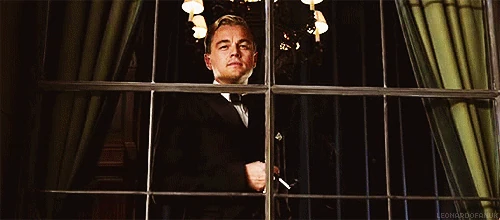The distortion of the views that people have towards Black women are very prominent when Beneatha chooses to cut her hair off. The narrator describes it as "close-cropped and unstraightened"(Hansberry 80), meaning her hair was short and somewhat curly. Ruth, completely baffled, makes it seem as if it is not normal to have hair like Beneatha's; She made it seem as if Beneatha is not socially acceptable to have hair as she does. Saying "You expect this boy to go out with you with your head all nappy" (Hansberry 80)? Nappy literally meaning "Afro-textured hair", but, why does nappy have to be a bad thing? George goes say that Beneatha looks "eccentric"(Hansberry 80), saying that she and her hair look abnormal and uncommon, but in a shameful way.
Africans naturally have curly, kiny, and ziggly types of hair. So to go from having naturally curly hair, to the hair that sprouts from your roots..."naturally" to be "eccentric" is quite a theory. "How can something that's natural be eccentric"(80)?
(like, there's an entire scale and everything)  Of course during the 50s and the 60s, Black women were known to have pressed/straightened hair. I know that as both time and society have evolved, Black hair and its societal standards will evolve too, as they have.
Of course during the 50s and the 60s, Black women were known to have pressed/straightened hair. I know that as both time and society have evolved, Black hair and its societal standards will evolve too, as they have.
Here's where it gets interesting...
At the start of slavery, to possess Euro-centric features was acceptable, and Black women began to abandon their cornrows, and their fro's to transition into a new do' that wasn't curly, or that did not resemble their original heritage. Which began the assimilation into White or European culture- Which is also exactly what Beneatha is challenging in this altercation between George and Ruth.
As I was doing the reading for A Raisin in the Sun, I've come to terms with the type of character Ruth is so far.
She's kinda hopeless, a bit of a worrier, and is always prepared for the worst case scenario...
She's almost- Rude, to an extent to where there is nothing to be happy about in the life she lives. All of her decisions, all of her emotions seem to be dictated by the monetary issues in her home. Her husband, Walter, notices as they converse over his breakfast.
He even makes the wide generalization that it is all colored women that behave this way... Which is a pretty large assumption, seeing that you'd have to know all Black women in order for what he said to be valid.
Beneatha, she doesn't believe in God;Which is fine. I guess I was really just a little uneasy to her mother's reaction because she slapped her. Then tried to justify her response by saying "What you did was childish-- So you got treated like a child"(Hansberry 52).
I think I can go as far as to say that's pretty much belittling her opinion, but I know things were different during this time.
- Something to think about...

Which ironically it kind of did.
"I think he half-expected her to walk into one of his parties...Then he began asking people casually if they knew her, and I was the first one he found." (Fitzgerald 79).
In this passage, Gatsby goes the immeasurable lengths just to rekindle his love with the married Daisy Fay Buchanan.
Seeing that Gatsby threw all of his extravagant gatherings as a gesture of his love to lure Daisy back to him. Spending mass amounts of money on parties he'd hope she'd walk into was a bit of a stretch in my opinion. In the novel, he throws two parties, the one he invites Nick to, to where he coincidentally runs into Ms. Baker, and the second one, to almost celebrate the newly found union between Daisy and Gatsby. Daisy, stringing him along, doesn't seem to care about his grand gestures, while her own husband engages in an affair with his mistress. What Gatsby was doing was half-sweet, and obsessive. He even "bought that house so that Daisy would be just across the bay" (Fitzgerald78), but, clearly love is blindness when it comes to Gatsby concluding the story with his own death and the mere fact that Daisy never musters up the courage to leave her husband for the man she truly loved.
Such a tragedy it seems because it all were for nothing. Gatsby's actions exceed any ideal of love that any other man could match.
This entire novel is a doomed love triangle that ends in the death's of Tom's mistress, Myrtle, and Daisy's lover, Gatsby. The people in the crossfire, Nick and Jordan, help them cheat on each other which shows just how dysfunctional their friendships are, and where their loyalties lie. How heartbreaking it was, showing not the least bit of remorse for what Daisy had done(killing a person and a relationship), and then she fled to avoid dealing with the cleanup.
She went back to him, and he went back to black.




